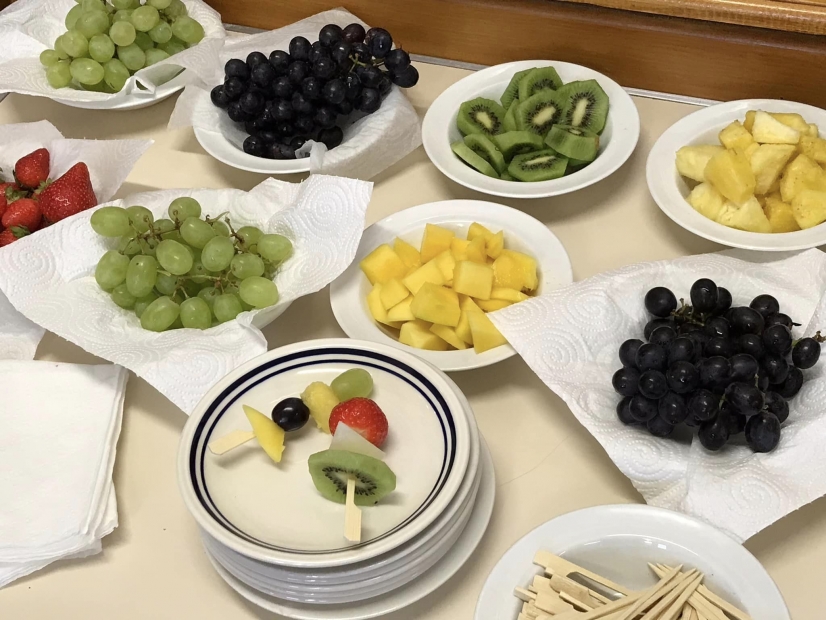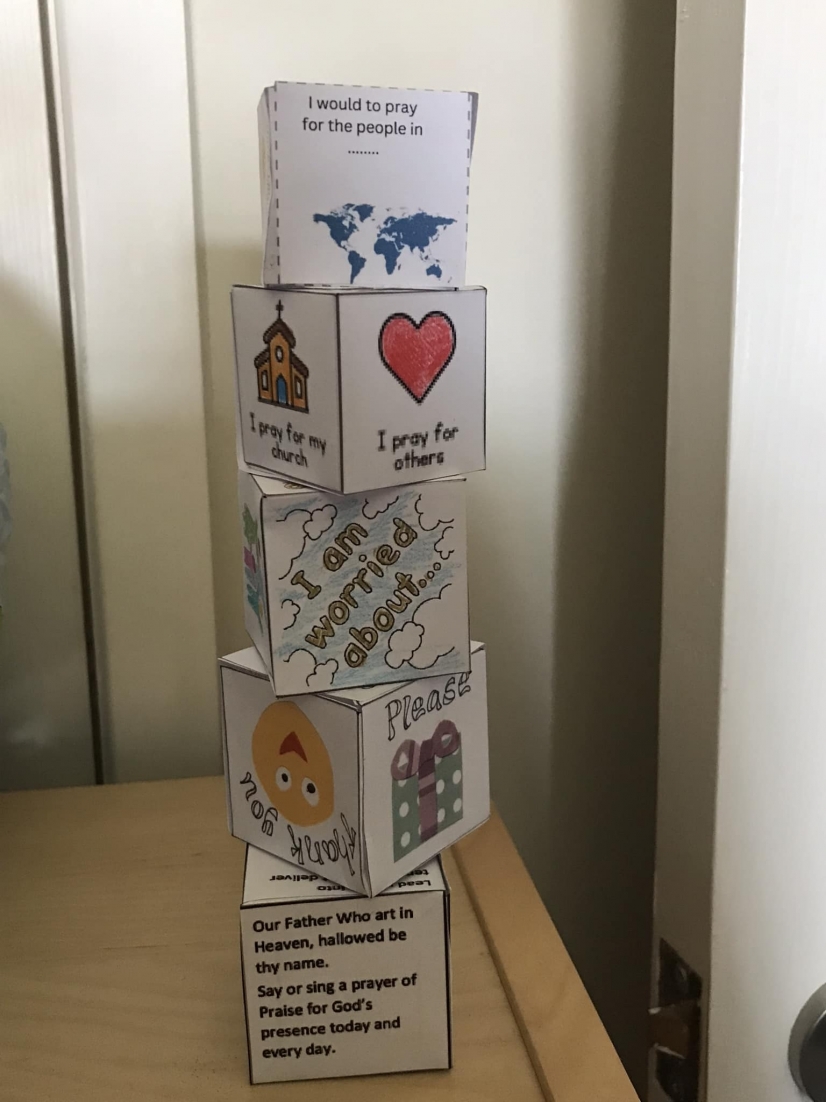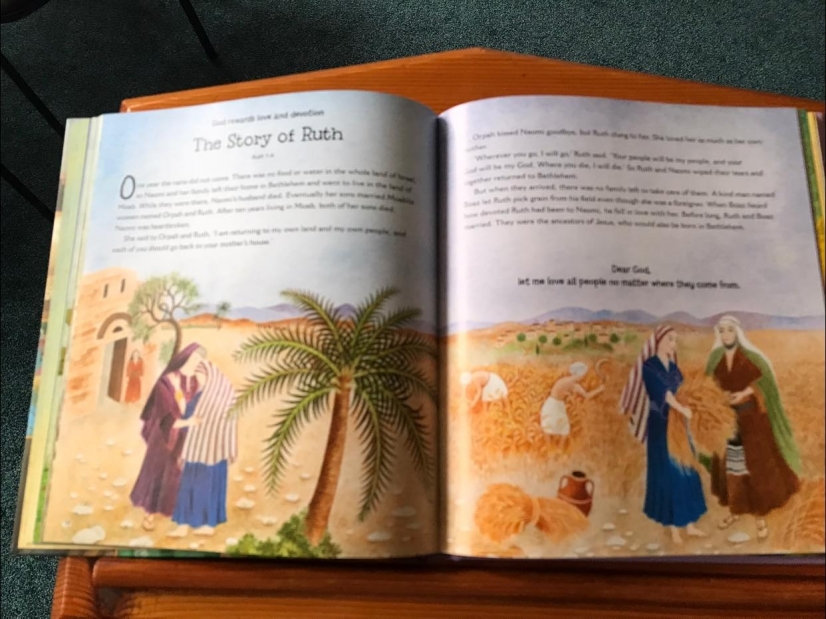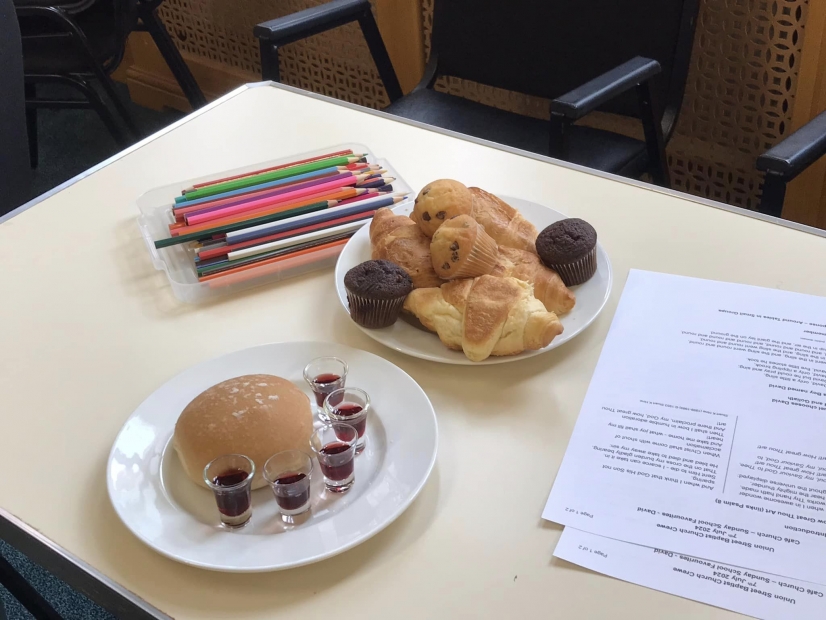Today began feeling like everything that might go wrong would, but in the end it was really wonderful, with people packed in and at least seeming to enjoy themselves.
When I arrived, nothing was set up by way of tech., so I had to get it all out and set it up - that's fine, not a problem, just it was the first time I've needed to, and a few glitches arose along the way...
Then I realised that I had forgotten to print off the quiz... and had left the craft activity at home... ah well, I thought I can work around both of those...
So, I didn't make the fruit kebabs, instead substituting 'making Daniel snacks' to replace the craft....
And instead of the quiz, I thought, well we can just see what people can recall about Daniel... but in the end that was abandoned as people kept piling in from all sorts of people-groups and I opted to invite people to share where they had come for today, and where they were born, recognising that many have moved away from their place of birth and many have not. It just about connected to the theme.
When we go to the sharing time, there were some great inputs - from questions about why Daniel refused to eat the royal food, to an account of how a dream of Jesus had lead to someone becoming a Christian, to beginning to think about why this set of stories is part of scripture.
It was a truly remarkable morning with so many people we needed more chairs, had to open the doors to avoid overheating, and almost certainly had slightly obstructed fire exits (I chose not to look!). Revival in Railway Town? Just maybe!
Anyway, for any loyal readers who are interested, here are today's discussion questions:
- What comes to mind when you think about the story of Daniel:
- Do you think it is a true story, is it a myth or a mixture of the two?
- This is one of the stories of the exile (when the Hebrew people were in Babylon (Persia) why do you think they are included in the Bible?
- Dreams, visions and supernatural signs
- In some cultures and religions dreams are taken very seriously even today, but we in the west usually don’t. What do you think about dreams, can they be significant?
- What other Bible stories can you recall where dreams or visions were important?
- How do you think God ‘speaks’ to people – or to put it another way, how might we discern the ‘Mind of Christ’?
- The book of Daniel is an example of ‘apocalyptic’ writing – referring to the end of time. As such it is very difficult to understand, and there is a risk of dodgy or dangerous interpretation. How do you think we should handle such parts of scripture and why?
- Thinking about religious freedom
- Baptists right from their earliest days placed a very strong emphasis on religious freedom – even if they believed other people to be wrong, they should still have the right to practice their own faith. Do you agree with them? Why do you think this?
- Daniel and his friends very publicly continued to practice their own religion, e.g. eating a vegan diet rather than the food offered by the court officials; e.g. refusing to bow to the statues, and insisting on praying three times a day. Do you think you would feel brave enough to do this? Why is that?
- In some parts of the world, it is dangerous to be a Christian (or indeed other faiths), risking arrest or even execution, yet people still express their faith. How might western Christians show their support?
- Many people seek asylum on religious grounds; most are honest but, sadly, some are not, how can we be ‘wise as serpents and innocent as doves’ in our relationship with other people who claim to share our faith?
- Personally (mainly for private pondering)
- Have you ever had to stand up for your beliefs as a follower of Jesus in a way that felt costly? Recall how it felt – would you do it again? Why is this?
- Are there times when it is right to remain silent about your faith, and instead live out the values quietly? Some overseas mission partners have to do just this e.g. in Nepal, Afghanistan and South Korea.
- How important for you is freedom of conscience (not just religion), and how far would you go to maintain it?
What do you like or dislike about the story of Daniel, and why?



